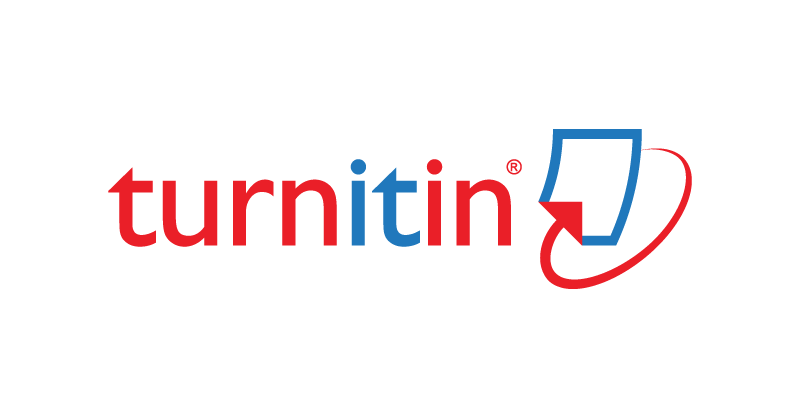Meta Analysis Study: Theory of Planned Behavior in Whistleblowing Intention
Abstract
Indonesia's Corruption Perception Index in 2022 had decreased significantly with a final score of 34 points and ranked Indonesia 110 out of 180 countries. It shows that corruption practices in Indonesia are high and the strategy for combating fraud is not effective. In practice, the fraud management strategies focus on improving internal control systems than preventive strategies such as whistleblowing system. This is due to the low intention of individuals to disclose fraud. Whistleblowers will encounter risks in organization, such as different prespective and norms in organization and the confidentiality and safety risk. Therefore, individuals need to carefully consider before deciding to become whistleblowers This study is aimed to examine individual factors that influence whistleblowing intention by the theory of planned behavior using meta-analysis technique, a quantitative method to measure the strength of the relationship of variables from previous research. Fourteen of the 53 selected studies were analyzed according to the eligibility criteria, the results is the highest correlation is the attitude toward behavior, then the subjective norm , and the lowest is the perceived behavioral control. It indicates that organization needs to stimulate an increase individual’s intention to disclose fraud by whistleblowing system as prevention strategy to combat fraud.
Full Text:
PDFReferences
Ajzen, I. (1991). The theory of planned behavior. Organizational behavior and human decision processes, 50(2), 179-211
Ajzen, I., & Dasgupta, N. (2015). Explicit and implicit beliefs, attitudes, and intentions. The sense of agency, 115.
Ajzen, I. (2020). The theory of planned behavior: Frequently asked questions. Human Behavior and Emerging Technologies, 2(4), 314-324.
Alleyne, P. (2016). The influence of organisational commitment and corporate ethical values on non-public accountants’ whistle-blowing intentions in Barbados. Journal of Applied Accounting Research.
Arkorful, V. E. (2022). Unravelling electricity theft whistleblowing antecedents using the theory of planned behavior and norm activation model. Energy Policy, 160, 112680.
Association of Certified Fraud Examiners. (2022). Occupational Fraud 2022: A Report to the nations. ACFE.
Barr-Pulliam, D. (2017). The relationship between internal audit assurance frequency and earnings manipulation intent and behavior: A theory of planned behavior approach. Available at SSRN 3093735.
Black, E. L., Burton, F. G., & Cieslewicz, J. K. (2022). Improving ethics: Extending the Theory of Planned Behavior to include moral disengagement. Journal of Business Ethics, 1-34.
Card, N. A. (2012). Applied meta-analysis for social science research. New York, NY: Guilford Press.
Cohen, J., Ding, Y., Lesage, C. et al. Corporate Fraud and Managers’ Behavior: Evidence from the Press. J Bus Ethics 95 (Suppl 2), 271–315 (2010). https://doi.org/10.1007/s10551-011-0857-2
Cooper, R., Kuh, D., Hardy, R., & Mortality Review Group. (2010). Objectively measured physical capability levels and mortality: systematic review and meta-analysis. Bmj, 341.
Danutama, P. R. R. (2019). Implementasi Theory Planned Behavior pada Perilaku Whistleblowing dengan Faktor Demografi sebagai Variabel Moderasi (Studi Empiris Mahasiswa Akuntansi pada Universitas di Surakarta) (Doctoral dissertation, Universitas Muhammadiyah Surakarta).
FEE, P. A. (2016). Pemoderasian Locus Of Control Dalam Pengaruh Audit Tenure Pada Kualitas Audit. E-Jurnal Ekonomi dan Bisnis Universitas Udayana, 5, 1543-1568.
Glass, G.V. (1976) “Primary, Secondary, and Meta-Analysis of Research”,Review of research in Education, http://www. blackwellpublishing.com /medicine/bmj/systreviews/)
Hoffman, W. M., & Robert, E. (2008). A Business Ethics Theory of Whistleblowing. Journal of Business and Environmental Ethics, 12(8), 45-59.
Iskandar, A., & Saragih, R. (2018). Pengaruh Sikap ke Arah Perilaku, Norma Subjektif, dan Persepsi Kontrol Atas Perilaku Terhadap Niat dan Perilaku Whistleblowing CPNS (The Influence of Attitude Toward the Behavior, Subjective Norms, and Perceived Behavioral Control on Whistleblowing Intention and Behavior of CPNS). Jurnal Tata Kelola & Akuntabilitas Keuangan Negara, 4, 63-84.
Jeon, S. H. (2017). Where to report wrong doings? Exploring the determinants of internal versus external whistleblowing. International Review of Public Administration, 22(2), 153-171.
Latan, H., Chiappetta Jabbour, C. J., & Lopes de Sousa Jabbour, A. B. (2019). ‘Whistleblowing triangle’: Framework and empirical evidence. Journal of Business Ethics, 160, 189-204.
Liu, Y., Zhao, S., Li, R., Zhou, L., & Tian, F. (2018). The relationship between organizational identification and internal whistle-blowing: the joint moderating effects of perceived ethical climate and proactive personality. Review of Managerial Science, 12, 113-134.
May-Amy, Y. C., Han-Rashwin, L. Y., & Carter, S. (2020). Antecedents of company secretaries’ behaviour and their relationship and effect on intended whistleblowing. Corporate Governance: The International Journal of Business in Society, 20(5), 837-861.
Moher, D., Shamseer, L., Clarke, M., Ghersi, D., Liberati, A., Petticrew, M., ... & Stewart, L. A. (2015). Preferred reporting items for systematic review and meta-analysis protocols (PRISMA-P) 2015 statement. Systematic reviews, 4(1), 1-9.
Othman, N., Mohamad, A. M., & Ismail, N. (2018). Predicting Factors Affecting Muslims' Family Takaful Participation: Theory of Planned Behaviour. Global Business and Management Research, 10(3), 1054.
Owusu, G. M. Y., Bekoe, R. A., Anokye, F. K., & Okoe, F. O. (2020). Whistleblowing intentions of accounting students: An application of the theory of planned behaviour. Journal of Financial Crime, 27(2), 477-492.
Park, C., & Keil, M. (2009). Organizational silence and whistle‐blowing on IT projects: An integrated model. Decision Sciences, 40(4), 901-918.
Perdana, A. A., Hasan, A., & Rasuli, M. (2018). Pengaruh Sikap, Norma Subyektif, Persepsi Kontrol Perilaku dan Etika terhadap Whistleblowing Intention dan Perilaku Whistleblowing (Studi Empiris di BPKP Perwakilan Riau dan Sumatera Barat). Jurnal Akuntansi Keuangan Dan Bisnis, 11(1), 89-98.
Rothschild, J., & Miethe, T. D. (1999). Whistle-blower disclosures and management retaliation: The battle to control information about organization corruption. Work and occupations, 26(1), 107-128.
Sarikhani, M., & Ebrahimi, F. (2022). Whistleblowing by accountants: an integration of the fraud pentagon and the extended theory of planned behavior. Meditari Accountancy Research, 30(6), 1740-1763.
Sweeney, P. (2008). Hotlines helpful for blowing the whistle. Financial Executive. 24(4), 28-31.
Tarjo, T., Suwito, A., Aprillia, I. D., & Ramadan, G. R. (2019). Theory of planned behavior and whistleblowing intention. Jurnal Keuangan dan Perbankan, 23(1), 43-57.
Transparency International Indonesia. (2023, 31 Januari). Indeks Persepsi Korupsi Indonesia 2022. Diakses pada 8 Juni 2023, dari https://ti.or.id/indeks-persepsi-korupsi-indonesia-2022-mengalami-penurunan-terburuk-sepanjang-sejarah-reformasi/
Triastuti, A., Jati, S. P., & Warsono, H. (2019). Factors affecting intensity whistleblowing of employees on the potential fraud of the national health insurance program. Unnes Journal of Public Health, 8(2), 104-111.
Tuan Mansor, T. M., Mohamad Ariff, A., & Hashim, H. A. (2020). Whistleblowing by auditors: the role of professional commitment and independence commitment. Managerial Auditing Journal, 35(8), 1033-1055.
Tuan Mansor, T. M., Ariff, A. M., Hashim, H. A., & Ngah, A. H. (2022). Whistleblowing intentions among external auditors: an application of the moderated multicomponent model of the theory of planned behaviour. Meditari Accountancy Research, 30(5), 1309-1333.
Wang, C., Zhang, J., Yu, P., & Hu, H. (2018). The theory of planned behavior as a model for understanding tourists’ responsible environmental behaviors: The moderating role of environmental interpretations. Journal of Cleaner Production, 194, 425-434.
Zakaria, M., Omar, N., Rosnidah, I., Bustamana, H. A., & Hadiyati, S. N. (2020). Adopting the planned behavioural theory in predicting whistleblowing intentions among indonesian public officials. Management & Accounting Review (MAR), 19(3), 25-47.
DOI: https://doi.org/10.31294/widyacipta.v8i1.17159
Copyright (c) 2024 Putri Fajar Handayani, Wa Ode Zusnita

This work is licensed under a Creative Commons Attribution-ShareAlike 4.0 International License.
Index by:
Published LPPM Universitas Bina Sarana Informatika with supported by Relawan Jurnal Indonesia
Jl. Kramat Raya No.98, Kwitang, Kec. Senen, Jakarta Pusat, DKI Jakarta 10450, Indonesia

This work is licensed under a Creative Commons Attribution-ShareAlike 4.0 International License





